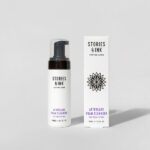Can You Get A Tattoo At 17 In Georgia? Tattooing laws vary by state, and in Georgia, state laws regarding body art and underage individuals are clear. At tattooat.com, we offer insights into tattoo regulations, helping you navigate the legal landscape and connect with reputable tattoo artists while ensuring compliance with local laws and regulations related to getting inked. Explore our comprehensive resources for inspiration, artist directories, and detailed guides to assist you in making informed decisions about expressing yourself through body art.
1. What Are Georgia’s Tattoo Laws for Minors?
In Georgia, it’s against the law to tattoo someone under 18 unless a licensed doctor or technician under a doctor’s supervision does it. Parental permission doesn’t change this, as outlined in O.C.G.A. § 16-5-71. This means even if you’re 17 and have your parents’ consent, you can’t legally get a tattoo in Georgia unless it’s for medical reasons.
1.1 What Does Georgia Law Say About Tattooing Minors?
Georgia law specifically prohibits tattooing anyone under 18. According to O.C.G.A. § 16-5-71, tattooing a minor is illegal unless performed by a licensed osteopath or a technician under their supervision. The law aims to protect minors from making permanent decisions they might regret and to ensure that any tattooing is done safely and professionally.
1.2 Is Parental Consent Enough to Get a Tattoo at 17 in Georgia?
No, parental consent is not enough to get a tattoo at 17 in Georgia. Even if your parents or legal guardians give you permission, it’s still illegal for a tattoo artist to ink you. The only exception is if the tattooing is for medical reasons and performed by a qualified healthcare professional.
1.3 What Are the Penalties for Tattooing a Minor in Georgia?
Tattooing a minor in Georgia can result in serious legal consequences for the tattoo artist. Violators may face criminal charges, fines, and potential jail time. The exact penalties can vary depending on the specific circumstances of the case, but the law is clear about the prohibition of tattooing minors without a medical necessity.
2. Why Does Georgia Have Such Strict Tattoo Laws?
Georgia has strict tattoo laws to protect minors from making choices they might later regret. These regulations also ensure safety and health standards are met. The laws reflect a concern for the well-being of young people and the permanence of tattoos.
2.1 Protecting Minors from Permanent Decisions
One of the primary reasons for strict tattoo laws is to protect minors from making permanent decisions that they might later regret. Tattoos are lasting, and what might seem like a good idea at 17 could be something you want to remove later in life. By setting a minimum age of 18, Georgia aims to ensure that individuals are mature enough to understand the long-term implications of getting a tattoo.
2.2 Ensuring Health and Safety Standards
Another important reason for these laws is to ensure that health and safety standards are met. Licensed tattoo artists are trained in proper sterilization and hygiene practices to prevent infections and other health risks. By restricting tattooing to licensed professionals, Georgia aims to protect young people from unsafe practices and potential health complications.
2.3 Concerns About Maturity and Informed Consent
The law also reflects concerns about maturity and informed consent. Minors may not fully understand the risks and responsibilities associated with getting a tattoo. By setting a minimum age, Georgia aims to ensure that individuals are capable of making informed decisions about their bodies and health.
 Tattoo artist makes a tattoo on the client s neck in tattoo salon
Tattoo artist makes a tattoo on the client s neck in tattoo salon
3. Are There Any Exceptions to the Tattoo Law in Georgia?
Yes, there’s an exception: if a licensed doctor or technician under their watch does the tattooing for medical reasons. This ensures necessary medical procedures can still happen. Otherwise, no other exceptions exist.
3.1 Medical Procedures
The main exception to Georgia’s tattoo law is for medical procedures. If a licensed doctor or a technician working under their direct supervision performs the tattooing for medical reasons, it is legal. This exception ensures that necessary medical treatments, such as reconstructive surgery or scar camouflage, can be performed without violating the law.
3.2 What Constitutes a Medical Necessity?
A medical necessity for a tattoo typically involves procedures that are performed to correct or improve a medical condition. Examples include:
- Reconstructive Tattooing: This can be used after surgery to restore the appearance of nipples after a mastectomy or to camouflage scars from injuries or surgeries.
- Scar Camouflage: Tattooing can be used to blend scars with the surrounding skin, making them less noticeable.
- Skin Conditions: In some cases, tattooing may be used to treat certain skin conditions under the guidance of a dermatologist.
3.3 Who Can Perform Medical Tattoos?
Medical tattoos must be performed by a licensed doctor or a technician working under their direct supervision. This ensures that the procedure is done safely and professionally, with appropriate medical oversight. It also guarantees that the individual performing the tattoo has the necessary training and expertise to handle any potential complications.
4. What Happens If You Get a Tattoo Under 18 in Georgia?
If you get a tattoo under 18 in Georgia, you’re not the one in trouble. The tattoo artist is. They could face fines or even jail time. It’s all about protecting minors.
4.1 Legal Consequences for the Tattoo Artist
The primary legal consequences fall on the tattoo artist who performs the tattoo on a minor. They can face criminal charges, fines, and potential jail time. The severity of the penalties can depend on the specific circumstances, but the law is clear that tattooing a minor is a serious offense.
4.2 No Direct Legal Repercussions for the Minor
Minors who receive tattoos in violation of the law typically do not face direct legal repercussions. The focus of the law is on preventing tattoo artists from performing tattoos on underage individuals, rather than punishing the minors themselves.
4.3 Potential Health Risks and Regret
While there may not be legal consequences for the minor, there are potential health risks and emotional consequences to consider. Getting a tattoo from an unlicensed or unprofessional artist can lead to infections, allergic reactions, and scarring. Additionally, the minor may later regret the decision to get a tattoo at a young age.
5. How Can You Find a Reputable Tattoo Artist in Georgia?
Finding a good tattoo artist in Georgia means checking licenses, reading reviews, and looking at their work. A clean shop and good reputation are key. Also, make sure they follow all the state’s rules.
5.1 Checking for Proper Licensing and Certification
One of the first steps in finding a reputable tattoo artist is to check for proper licensing and certification. In Georgia, tattoo artists are required to be licensed by the state. You can verify an artist’s license by checking with the Georgia Department of Public Health.
5.2 Reading Reviews and Testimonials
Another important step is to read reviews and testimonials from previous clients. Online review platforms, social media, and the tattoo artist’s website can provide valuable insights into their skills, professionalism, and customer service. Look for consistent positive feedback and be wary of any red flags or recurring complaints.
5.3 Assessing the Studio’s Cleanliness and Reputation
The cleanliness and reputation of the tattoo studio are also crucial factors to consider. A reputable studio will maintain a clean and sterile environment to prevent infections and ensure the safety of their clients. Look for studios that follow strict hygiene practices and have a good reputation in the community.
5.4 Portfolio Review
Always review the tattoo artist’s portfolio. This will give you a clear idea of their skills, style, and expertise. Look for examples of work that align with your vision for your tattoo. A good artist should be able to showcase a diverse range of styles and techniques.
5.5 Consultation
Schedule a consultation with the tattoo artist to discuss your ideas and ask any questions you may have. This is a great opportunity to assess their communication skills, professionalism, and willingness to work with you to create the perfect tattoo.
tattooat.com is an excellent place to start your search for reputable tattoo artists in Georgia. Our platform features a curated list of talented artists and studios, complete with portfolios, reviews, and contact information. We also provide valuable resources and guides to help you make informed decisions about your tattoo journey.
Address: 1825 SW Broadway, Portland, OR 97201, United States
Phone: +1 (503) 725-3000
Website: tattooat.com
6. What Are Some Popular Tattoo Styles?
Popular styles include traditional, watercolor, and geometric. Each has its own look and requires a skilled artist. Knowing what you like helps you find the right person to create your art.
6.1 Traditional Tattoos
Traditional tattoos, also known as old-school tattoos, are characterized by bold outlines, simple designs, and a limited color palette. Common motifs include anchors, roses, eagles, and nautical themes. These tattoos have a timeless appeal and are known for their durability and clarity.
6.2 Watercolor Tattoos
Watercolor tattoos mimic the look of watercolor paintings, with soft, blended colors and a fluid, ethereal quality. These tattoos often feature delicate designs and vibrant hues. They require a skilled artist who can create the watercolor effect while ensuring the tattoo remains durable and long-lasting.
6.3 Geometric Tattoos
Geometric tattoos feature precise lines, shapes, and patterns to create visually striking designs. These tattoos can range from simple geometric shapes to complex mandalas and intricate patterns. They require a high level of precision and attention to detail from the tattoo artist.
6.4 Realism Tattoos
Realism tattoos aim to replicate photographs or real-life images with incredible detail and accuracy. These tattoos require a highly skilled artist who can create realistic textures, shading, and color gradients. Realism tattoos can feature portraits, landscapes, or any other subject matter.
6.5 Blackwork Tattoos
Blackwork tattoos are characterized by the use of solid black ink to create bold, graphic designs. These tattoos can range from tribal patterns and geometric shapes to intricate illustrations and abstract compositions. Blackwork tattoos require a skilled artist who can create clean lines and solid fills.
7. How to Prepare for Your First Tattoo?
Prep for your first tattoo by staying hydrated, avoiding alcohol, and picking comfy clothes. Research the design and artist, and ask any questions you have. Good prep makes for a better experience.
7.1 Researching Your Design and Artist
Before getting your first tattoo, it’s important to do your research. Take the time to explore different tattoo styles and designs to find something that resonates with you. Also, research different tattoo artists to find someone who specializes in the style you’re interested in and has a good reputation.
7.2 Staying Hydrated and Avoiding Alcohol
Staying hydrated and avoiding alcohol are crucial steps in preparing for your first tattoo. Hydrated skin is easier to work with, which can make the tattooing process smoother and less painful. Alcohol can thin your blood, which can lead to excessive bleeding during the procedure.
7.3 Choosing Comfortable Clothing
Choosing comfortable clothing is also important. Wear something that allows easy access to the area being tattooed and won’t rub against the fresh tattoo. Loose-fitting clothing is ideal.
7.4 Asking Questions and Communicating with Your Artist
Don’t hesitate to ask questions and communicate with your tattoo artist. They are there to guide you through the process and ensure you have a positive experience. Ask about their sterilization practices, the tattooing process, and aftercare instructions.
7.5 Mental Preparation
Getting a tattoo can be a bit nerve-wracking, especially if it’s your first time. Take some time to mentally prepare yourself for the experience. Relax, breathe, and focus on the excitement of getting a new tattoo.
8. What Is Tattoo Aftercare?
Aftercare is key to keep your tattoo looking good and staying healthy. Clean it gently, use a good lotion, and stay out of the sun. Follow your artist’s advice closely.
8.1 Keeping the Tattoo Clean
Keeping the tattoo clean is essential for proper healing. Gently wash the tattoo with mild, fragrance-free soap and warm water two to three times a day. Avoid using harsh soaps or scrubbing the tattoo.
8.2 Applying a Healing Ointment or Lotion
After washing the tattoo, apply a thin layer of a healing ointment or lotion. Choose a product recommended by your tattoo artist, such as Aquaphor or a fragrance-free lotion. Apply the ointment or lotion sparingly to avoid suffocating the tattoo.
8.3 Avoiding Sun Exposure
Sun exposure can damage a new tattoo and cause the colors to fade. Avoid direct sun exposure for at least two weeks after getting your tattoo. If you must be in the sun, apply a high-SPF sunscreen to protect the tattoo.
8.4 Avoiding Soaking the Tattoo
Avoid soaking the tattoo in water for extended periods of time. This means no swimming, baths, or long showers. Soaking the tattoo can increase the risk of infection and interfere with the healing process.
8.5 Following Your Artist’s Instructions
Always follow your tattoo artist’s specific aftercare instructions. They may have additional recommendations based on your skin type, the tattoo’s location, and the ink used.
tattooat.com provides detailed aftercare guides and product recommendations to help you keep your tattoo looking its best. Our resources cover everything from cleaning and moisturizing to sun protection and long-term care.
 Close up of a woman arm with fresh tattoo covered in protective bandage
Close up of a woman arm with fresh tattoo covered in protective bandage
9. Can You Remove a Tattoo?
Yes, you can remove a tattoo, but it’s not simple. Laser removal is common, but it can be pricey and take multiple sessions. Other methods exist, but they might leave scars.
9.1 Laser Tattoo Removal
Laser tattoo removal is the most common and effective method for removing tattoos. The laser breaks down the tattoo ink into smaller particles, which are then absorbed by the body. Laser tattoo removal typically requires multiple sessions, and the cost can vary depending on the size, color, and complexity of the tattoo.
9.2 Surgical Excision
Surgical excision involves cutting out the tattoo and stitching the skin back together. This method is typically used for smaller tattoos and can leave a scar.
9.3 Dermabrasion
Dermabrasion involves sanding down the skin to remove the tattoo. This method is less common than laser removal and can be painful and leave scars.
9.4 Tattoo Removal Creams
Tattoo removal creams claim to fade tattoos over time, but their effectiveness is limited. These creams typically contain chemicals that can irritate the skin and may not completely remove the tattoo.
9.5 Factors Affecting Tattoo Removal
The success of tattoo removal can depend on several factors, including the size, color, and age of the tattoo, as well as the individual’s skin type and immune system. Darker inks, such as black and blue, are typically easier to remove than lighter colors, such as green and yellow.
10. What Are the Latest Trends in Tattoo Art?
Tattoo art keeps changing. Right now, fine line, abstract, and nature-inspired tattoos are big. Artists mix styles and use new tech to create unique pieces.
10.1 Fine Line Tattoos
Fine line tattoos are characterized by delicate, intricate designs created with very thin needles. These tattoos often feature minimalist designs, geometric patterns, and delicate details. Fine line tattoos require a skilled artist with a steady hand and a keen eye for detail.
10.2 Abstract Tattoos
Abstract tattoos are non-representational designs that focus on shapes, colors, and textures. These tattoos can be highly personalized and expressive, allowing the artist to create unique and visually striking compositions.
10.3 Nature-Inspired Tattoos
Nature-inspired tattoos feature elements from the natural world, such as flowers, trees, animals, and landscapes. These tattoos can range from realistic depictions to stylized interpretations and often carry symbolic meanings.
10.4 Geometric and Mandala Tattoos
Geometric and mandala tattoos continue to be popular, with intricate patterns and symmetrical designs that create visually stunning compositions. These tattoos often carry spiritual or symbolic meanings and require a high level of precision and skill from the tattoo artist.
10.5 The Use of Technology in Tattoo Art
Technology is playing an increasingly important role in tattoo art, with artists using digital tools to create designs, plan placements, and even simulate the tattooing process. This allows for greater precision and creativity, as well as the ability to collaborate with clients remotely.
At tattooat.com, we stay up-to-date on the latest trends in tattoo art and feature artists who are pushing the boundaries of creativity and innovation. Our platform is a great place to discover new styles, find inspiration, and connect with talented artists who can bring your vision to life.
FAQ: Can You Get A Tattoo At 17 In Georgia?
1. Can I get a tattoo at 17 with parental consent in Georgia?
No, in Georgia, it’s illegal to tattoo anyone under 18, even with parental consent, unless it’s done by a licensed doctor or technician for medical reasons.
2. What is the penalty for a tattoo artist who tattoos a minor in Georgia?
A tattoo artist who tattoos a minor in Georgia can face criminal charges, fines, and potential jail time.
3. Are there any exceptions to Georgia’s tattoo law for minors?
Yes, the only exception is if a licensed doctor or a technician working under their direct supervision performs the tattooing for medical reasons.
4. What should I do if I want a tattoo but I’m only 17 in Georgia?
You’ll need to wait until you turn 18 to legally get a tattoo in Georgia. In the meantime, you can research tattoo styles and artists to plan your future tattoo.
5. Can an emancipated minor get a tattoo in Georgia?
No, even if you’re an emancipated minor, you still can’t legally get a tattoo in Georgia until you’re 18, unless it’s for medical reasons.
6. Is it legal for a tattoo artist to ask for proof of age?
Yes, it’s legal and common for tattoo artists to ask for proof of age to ensure they are not violating the law.
7. What kind of ID is accepted as proof of age?
A valid government-issued photo ID, such as a driver’s license or passport, is typically accepted as proof of age.
8. Can I get a tattoo in another state where the laws are less strict?
While you could travel to another state with less strict laws, it’s important to consider the legal and ethical implications of doing so. It’s always best to comply with the laws of your home state.
9. What if I already have a tattoo from when I was a minor?
Having a tattoo from when you were a minor doesn’t have any legal consequences for you, but it’s a reminder of the importance of following the law and waiting until you’re 18 to make such decisions.
10. Where can I find reputable tattoo artists in Georgia once I turn 18?
You can find reputable tattoo artists in Georgia on tattooat.com, which features a curated list of talented artists and studios, complete with portfolios, reviews, and contact information.
Ready to explore the world of tattoos? Visit tattooat.com for inspiration, artist directories, and helpful guides. Whether you’re planning your first tattoo or looking for a new artist, we have everything you need to make informed decisions and express yourself through body art. Discover stunning designs, connect with talented artists, and learn about the latest trends in the tattoo community. Start your tattoo journey today with tattooat.com!

